The Guild
The Guild’s community-owned real estate model expands affordable housing and entrepreneurship opportunities in Atlanta.
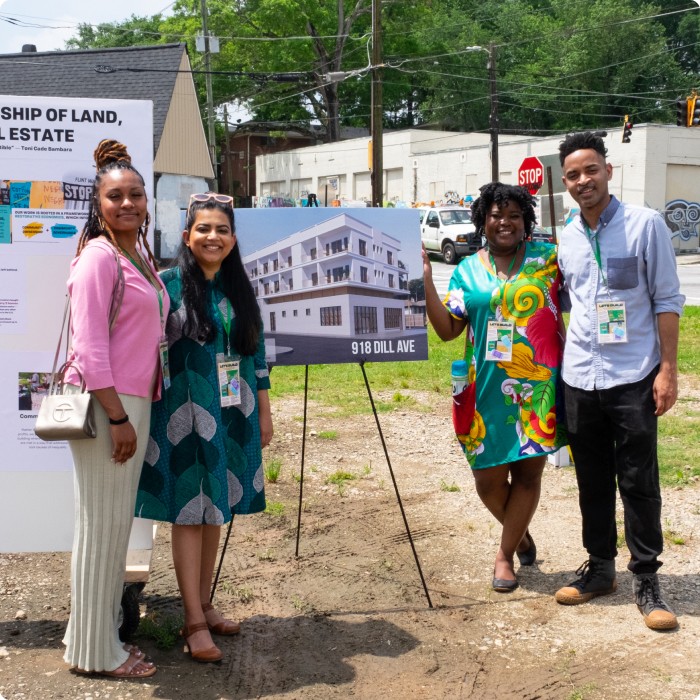 At 918 Dill Avenue in the historic Capitol View neighborhood of Atlanta, a 7,000+ square-foot white brick building currently sits vacant, and has been for nearly a decade.
At 918 Dill Avenue in the historic Capitol View neighborhood of Atlanta, a 7,000+ square-foot white brick building currently sits vacant, and has been for nearly a decade.
But not for long.
Soon this one-story commercial structure, located in the heart of one of Atlanta’s historic Black communities, will breathe new life with three stories of space for living, working, creating, and thriving.
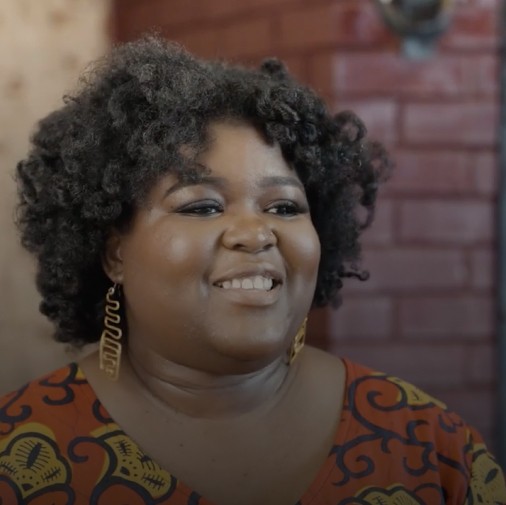
The building will house 18 new cooperative housing units. A locally sourced grocery store on the ground floor. Three commercial kitchens for emerging BIPOC food entrepreneurs. A “Possibilities Studio” for workshops, health and wellness programs, governance meetings, and panel discussions. Morning yoga sessions. Nighttime community events. Workspace for artists and creatives. A lending library centered around political education. A “memory work lab” as an offering for legacy residents to archive and preserve memories, community culture, photos, or oral histories.
And more.
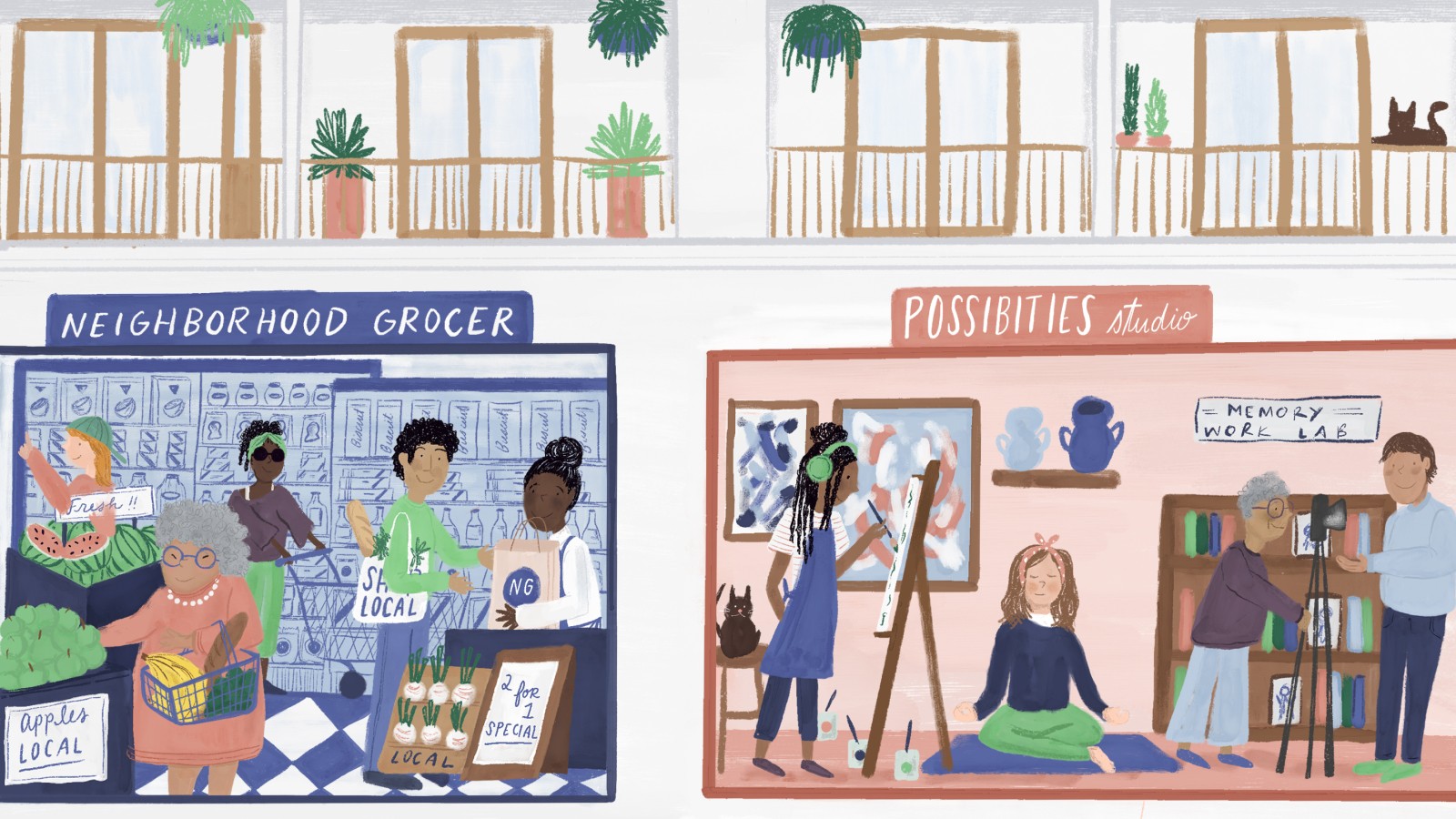
The best part? This development will become a permanent affordable housing model in an area at risk of rapid gentrification. It will also be completely owned and governed by its residents, neighbors from Capitol View, and those in surrounding southwest Atlanta communities, through a Community Stewardship Trust (CST) model, developed by The Guild.

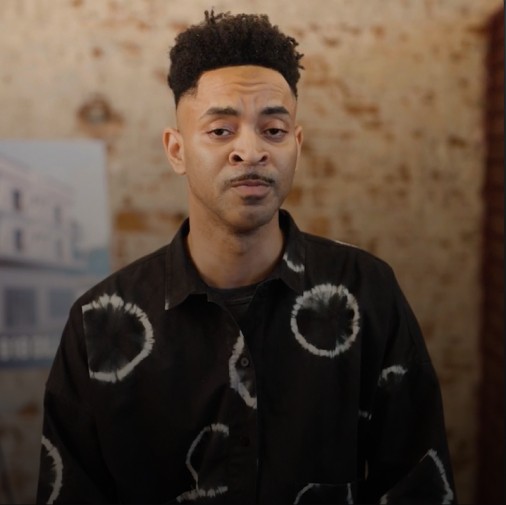
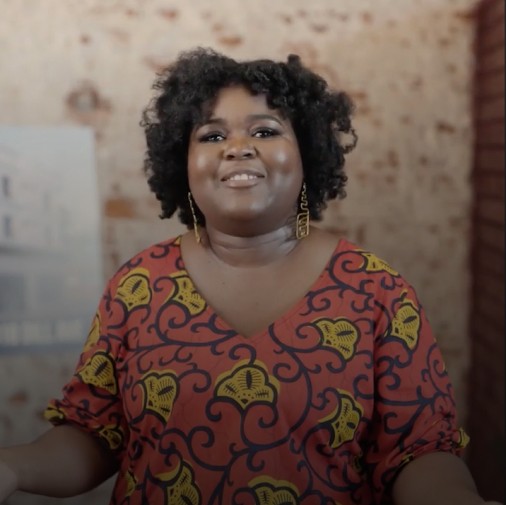
Repairing historic inequity in Black communities
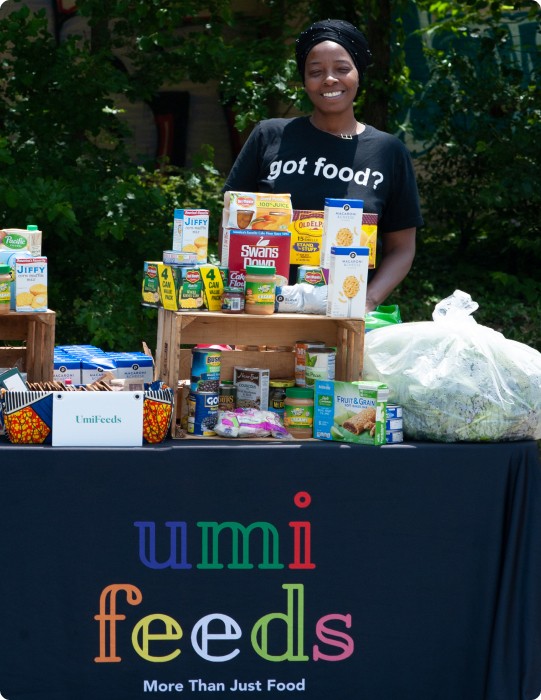 Generations of racist housing, land-use patterns, development practices, appraisals and financial policies have created persistent and widening racial wealth disparities in the city of Atlanta. Research has shown racist real estate practices can lead to:
Generations of racist housing, land-use patterns, development practices, appraisals and financial policies have created persistent and widening racial wealth disparities in the city of Atlanta. Research has shown racist real estate practices can lead to:
- Housing crises
- Food apartheid
- Poorly funded schools
- Policing challenges
- Environmental injustices
- Health inequities
- Gentrification and displacement
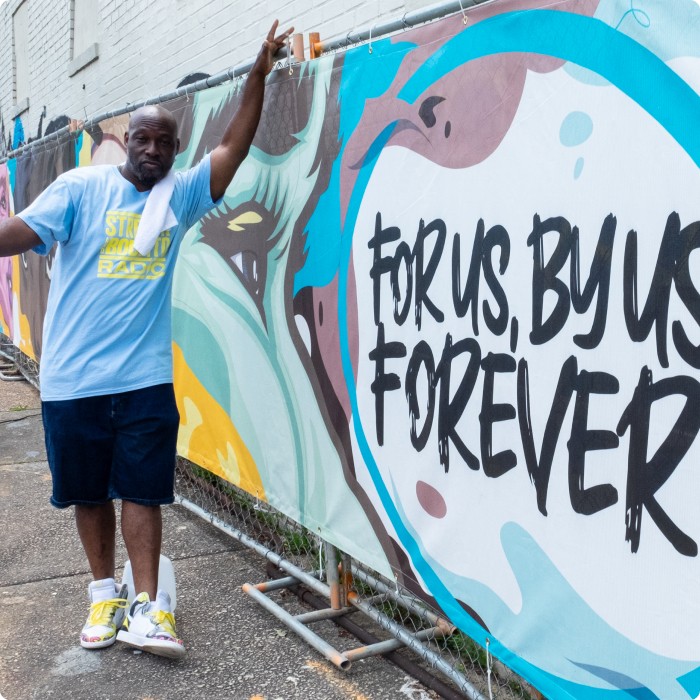 Despite Atlanta’s reputation as a “Black mecca,” the Black homeownership rate in the city remains about 25% less than that of white households as of 2021, based on data from Zillow.
Despite Atlanta’s reputation as a “Black mecca,” the Black homeownership rate in the city remains about 25% less than that of white households as of 2021, based on data from Zillow.
According to the U.S. Census Bureau data, and other reports, the Black ownership rate in Atlanta at the end of 2020 was 48.7%, with white ownership at 75.6%. Nationwide, the Black ownership rate was 44.1%, with ownership among white residents at 74.5%. However, deliberate action to expand access to home ownership and wealth-building opportunities can help to close the racial wealth gap.

The Guild aims to preserve housing affordability and the rich cultural identity of historically Black neighborhoods by building an alternative model of real estate development that centers Black communities and communities of color that have been disenfranchised.
By utilizing the CST model, The Guild and its partners aim to intentionally repair historic inequities while working to build power with neighborhood residents and organizations fighting to thrive in their own communities. The CST model provides ownership opportunities for residents, prevents displacement, and engages residents in the design and development process.
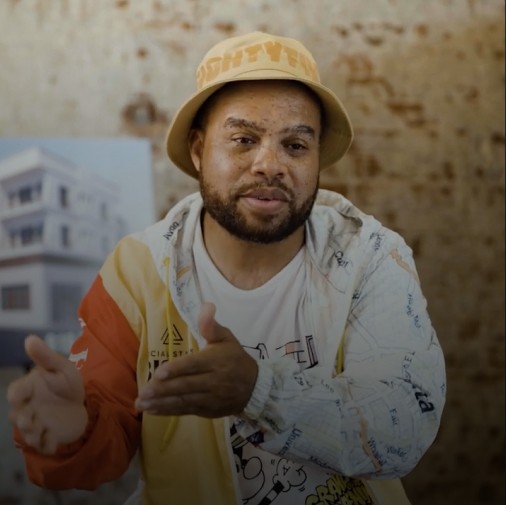
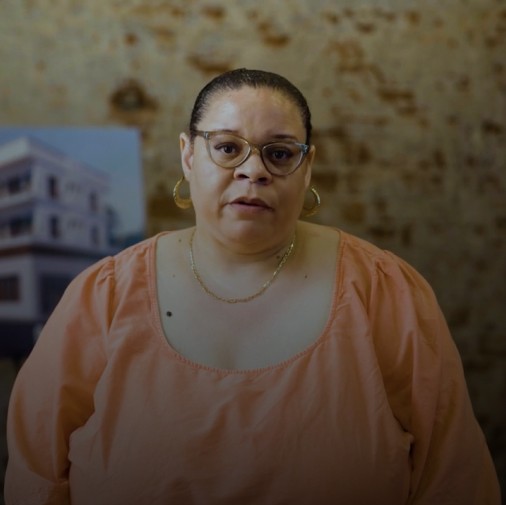
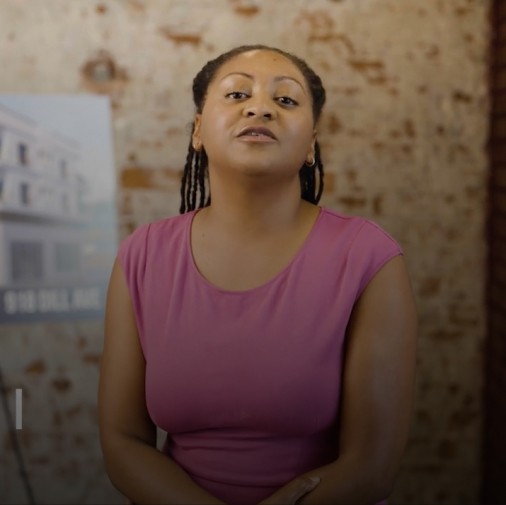
Understanding the CST Model
The Guild and its partners have been able to expand their pipeline of real estate redevelopment projects and share their model with other organizations focused on reducing the racial wealth gap in cities where rising land values are fueling displacement pressure. The CST model serves as a solution to these barriers by acting as a vehicle for capacity building. Over time, the model allows residents and local organizations to collectively identify and advocate for future developments within their communities.
Developments like 918 Dill Avenue.

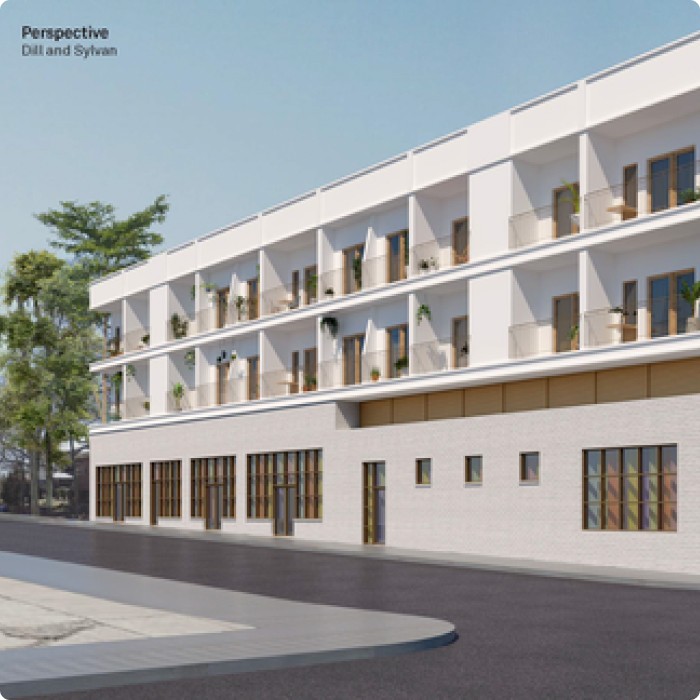 But exactly how does the model work? Community residents buy shares and become investors in the property, with voting rights and equity. Residential and commercial tenants pay rent, which pays down debt on the building and provides dividends for community investors. The Guild also provides investor and communal governance training and membership in a local democratic governing body.
But exactly how does the model work? Community residents buy shares and become investors in the property, with voting rights and equity. Residential and commercial tenants pay rent, which pays down debt on the building and provides dividends for community investors. The Guild also provides investor and communal governance training and membership in a local democratic governing body.
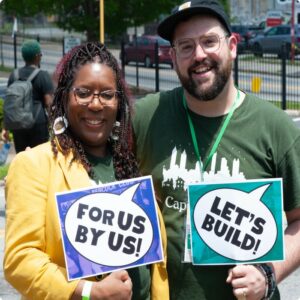 Through the CST model, community engagement is ongoing and intentional, rather than sporadic and transactional. Vacant, underutilized, or newly available properties can be collectively queued, approved, and advocated for by local residents, allowing developers to best focus their efforts, time, and capital on delivering community-owned assets as the highest priority.
Through the CST model, community engagement is ongoing and intentional, rather than sporadic and transactional. Vacant, underutilized, or newly available properties can be collectively queued, approved, and advocated for by local residents, allowing developers to best focus their efforts, time, and capital on delivering community-owned assets as the highest priority.
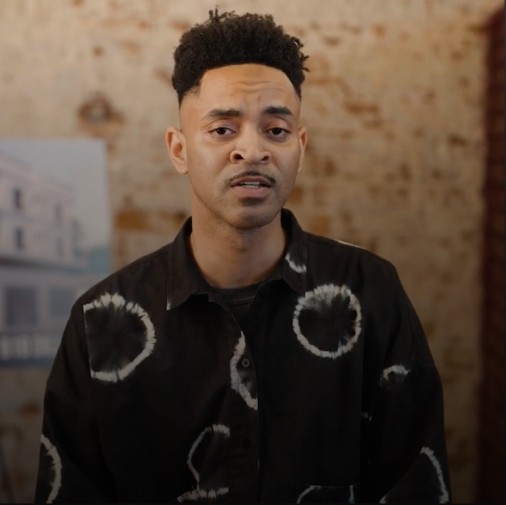
Community ownership then emerges as an alternative to exclusionary and extractive practices while creating a pathway for community-wealth building and self-determination for marginalized communities.
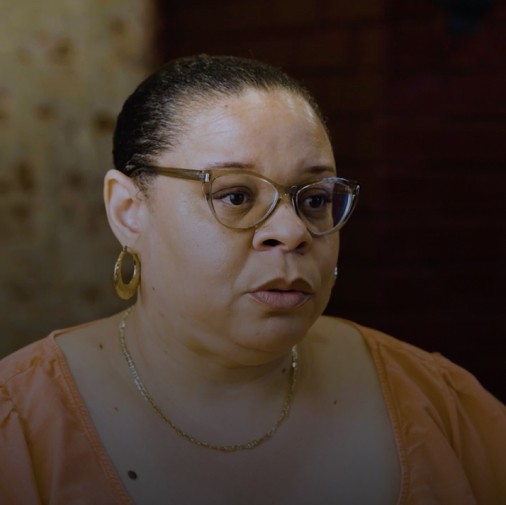


Preserving Neighborhood Identity,
Stability and Affordability
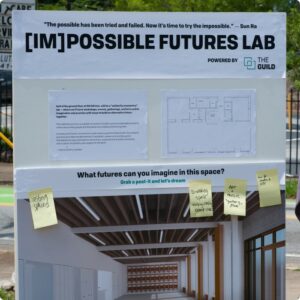 A key component of preventing a further widening of the racial wealth gap is stabilizing communities of color, especially after these communities have felt the disproportionate economic impacts from the pandemic and previous economic crises.
A key component of preventing a further widening of the racial wealth gap is stabilizing communities of color, especially after these communities have felt the disproportionate economic impacts from the pandemic and previous economic crises.
While financial literacy and home ownership programs hold some value, they have proven insufficient to create new on-ramps for property ownership. They are also not designed to preserve neighborhood identity, stability and affordability at scale.
Through its work, The Guild envisions power shifting from corporations, investors, and developers with no stake in local neighborhoods, into the hands of residents, small businesses, and community-based organizations.
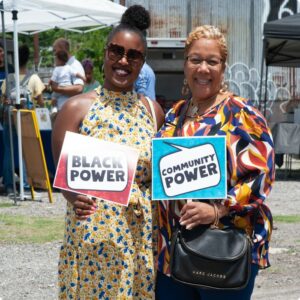 The result? People are prioritized over profits and decisions are made by and with Black communities. Revitalization takes place without repeating patterns of extraction that are prevalent to the real estate industry, with both equity and decision-making power residing with residents and community anchors.
The result? People are prioritized over profits and decisions are made by and with Black communities. Revitalization takes place without repeating patterns of extraction that are prevalent to the real estate industry, with both equity and decision-making power residing with residents and community anchors.
Preventing evictions through stable housing… Creating livable wages through local economic development… Providing wealth-building opportunities through the collective ownership of neighborhood assets – while also preventing the wealth from development projects from being extracted out of these communities… These elements all work together to support the stabilization of marginalized communities and help prevent the erosion of wealth.
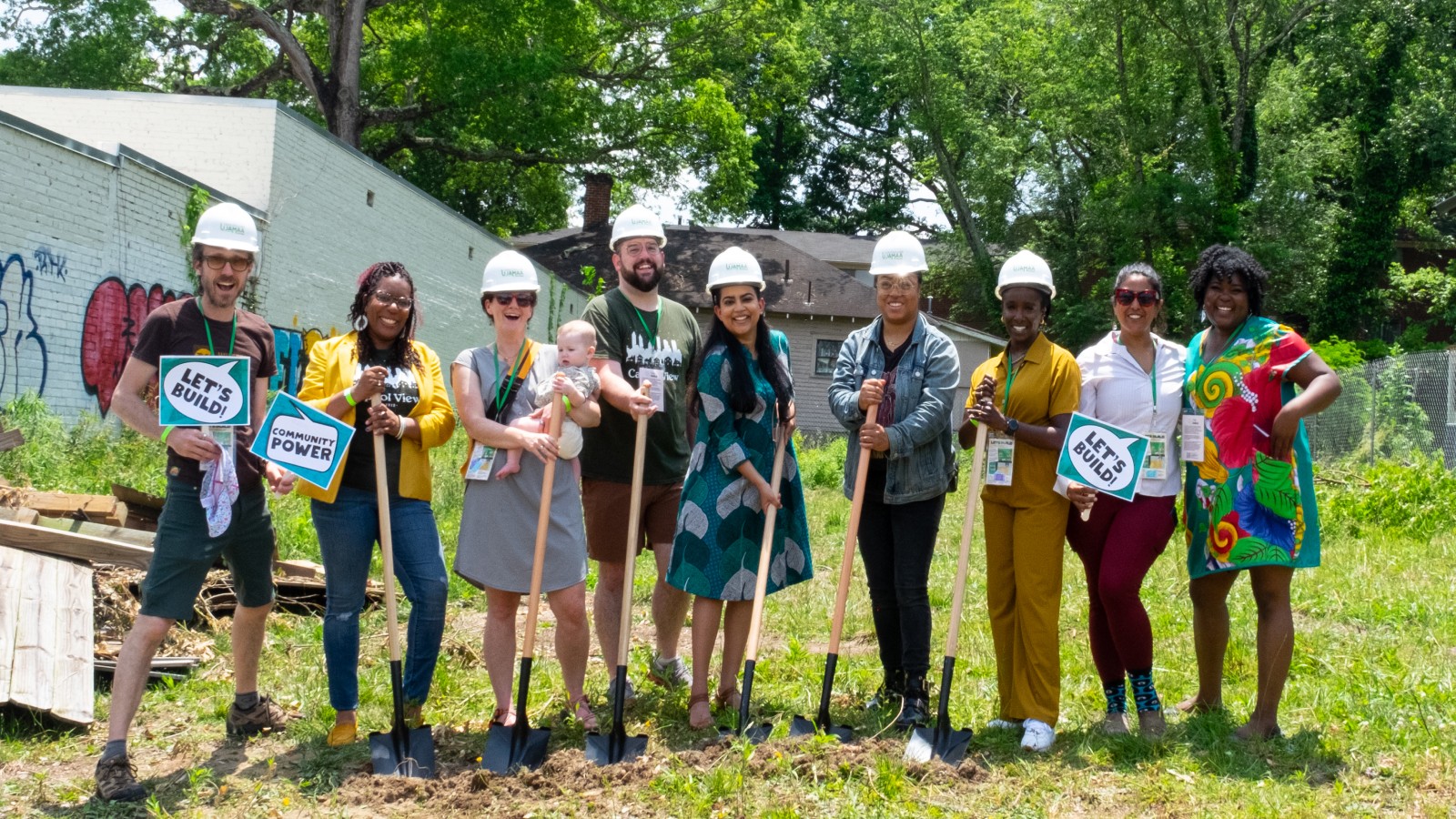
About Our Partnership
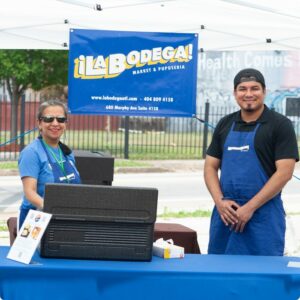 This project is funded by Kresge’s Arts & Culture and Health programs to support The Guild in expanding its Community Stewardship Trust model of redevelopment in Southwest Atlanta.
This project is funded by Kresge’s Arts & Culture and Health programs to support The Guild in expanding its Community Stewardship Trust model of redevelopment in Southwest Atlanta.
Partnering with The Guild aligns with Kresge’s focus on community investment for health equity by reducing the racial wealth gap and fostering new models of community ownership while also expanding housing affordability and access to healthy food. This effort also advances the Arts & Culture Program’s priorities by developing creative approaches that empower residents to shape healthier neighborhoods.
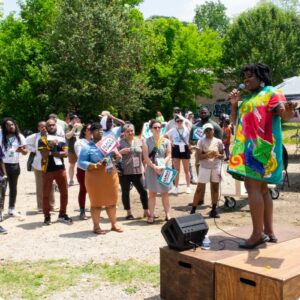 The Guild is a leading innovator in the growing field of community ownership of residential and commercial real estate, and their model of Community Stewardship Trusts offers substantial promise to others working to build the wealth of Black, Indigenous, and other People of Color in urban neighborhoods.
The Guild is a leading innovator in the growing field of community ownership of residential and commercial real estate, and their model of Community Stewardship Trusts offers substantial promise to others working to build the wealth of Black, Indigenous, and other People of Color in urban neighborhoods.
As a majority-Black and 100% BIPOC-led organization, The Guild is dedicated to reversing decades of extractive financial practices by building Black wealth, ownership and local control of development.
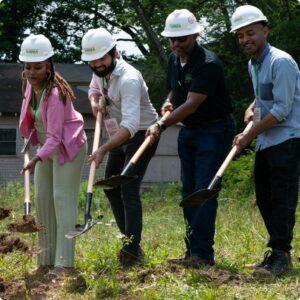 In addition to the 918 Dill Avenue development, The Guild is also building a $10 million investment fund to acquire and redevelop other properties in southwest Atlanta. Local residents will gradually buy out The Guild’s equity positions in each property via small-dollar increment investments to fully own each property and enjoy the upside of appreciated value.
In addition to the 918 Dill Avenue development, The Guild is also building a $10 million investment fund to acquire and redevelop other properties in southwest Atlanta. Local residents will gradually buy out The Guild’s equity positions in each property via small-dollar increment investments to fully own each property and enjoy the upside of appreciated value.
The Guild also trains emerging Black developers to conduct small-scale infill development and on a wide range of community engagement and mobilization activities.
Now + Then Stories
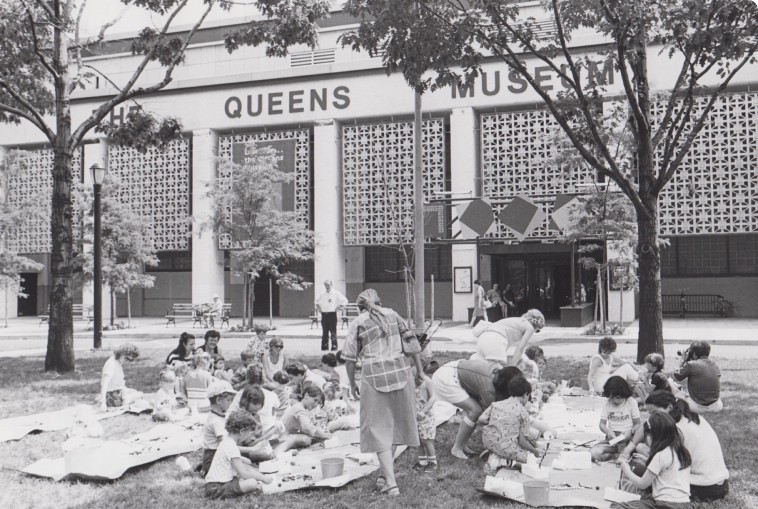
Now + Then Arts & Culture
An evolution from capital challenge grants to Creating Placemaking inspires a field of work.
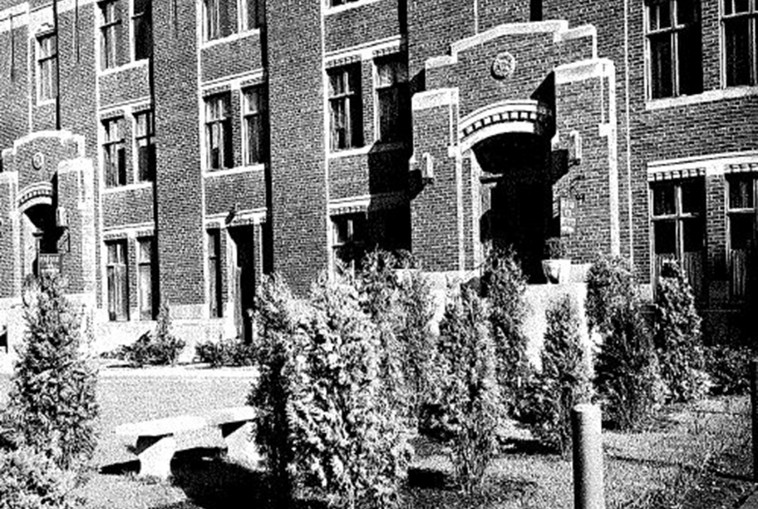
Now + Then Health
A founding area of support refines its strategy to community health, health equity.
